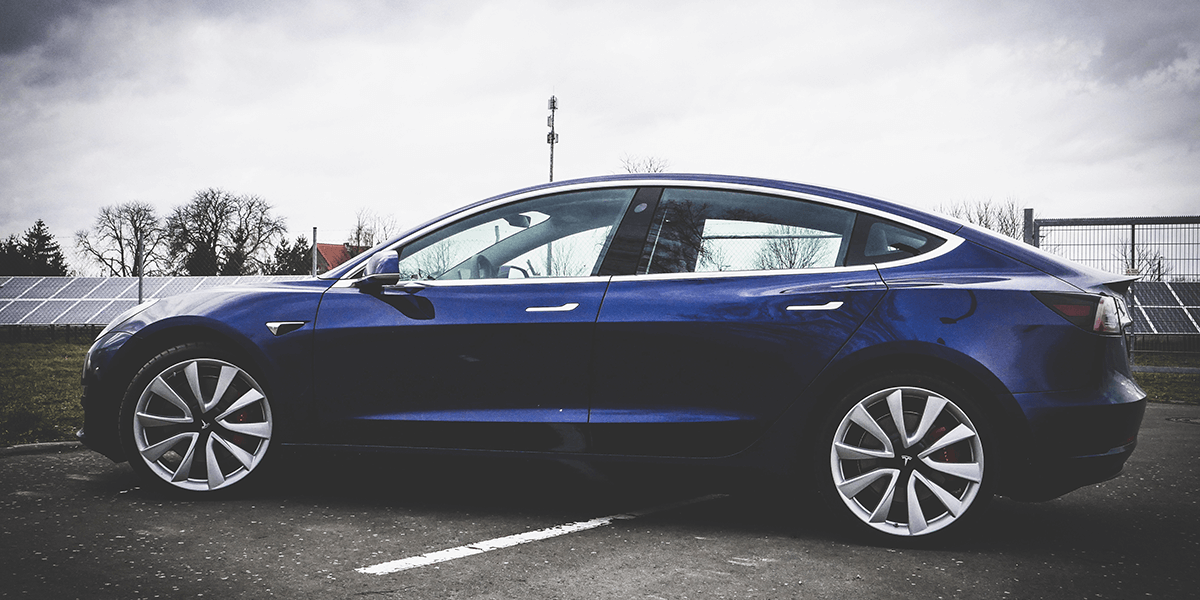Study: Electric cars cause less CO2 emissions than ICE
According to a new study conducted by the Technical University of Eindhoven on behalf of the Green Party in the German Bundestag, currently sold electric cars are responsible for significantly lower CO2 emissions compared to internal combustion engines (ICE).
These figures take into account both the production and the use of the vehicles. A Tesla Model 3, for example, produces 91 grams of CO2 equivalent per kilometre, which is 65 per cent less than the 260 grams of a Mercedes C 220d. According to the study, Model 3 has thus already made up for its CO2 deficit due to the production of the battery after driving 30,000 kilometres.
In the study entitled ‘Comparison of Lifelong Greenhouse Gas Emissions from Electric Cars with Emissions from Vehicles with Gasoline or Diesel Engines’, the Technical University of Eindhoven puts the manufacturing process of the Model 3 at 51 grams per kilometre (23 grams of which are for the battery). In comparison, driving generates a further 40 grams of CO2 per kilometre – making the 91 grams mentioned above. The Mercedes performs better in production and comes in this rating to 32 grams CO2 equivalent. Driving, however, releases 228 grams of CO2 per kilometre, so the overall balance is clearly in favour of the Tesla Model 3.
The comparison of the Model 3 with a diesel-powered C-Class is no coincidence, as the much-criticised study by the Ifo Institute attested that the CO2 balance of the American electric sedan was significantly worse than that of the Mercedes C-Class.
According to the study, the CO2 burden of around 30,000 kilometres can also be transferred to another segment with a different comparative drive. With production and use, the VW e-Golf comes to 78 grams of CO2 equivalent. The Toyota Prius, with its hybrid drive, comes to 168 grams per kilometre due to the CO2 emissions of the gasoline engine. After 28,000 kilometres, in this case, the e-Golf has made up for the higher CO2 emissions of its production and saves CO2 with every additional kilometre compared to the Prius.
The most significant percentage savings were achieved with sports cars, although here too the comparison is somewhat misleading due to the different vehicles and target groups. According to the study, the production of a Bugatti Veyron resulted in 40 grams of CO2 equivalent, but when driving, this came to 738 grams. A Porsche Taycan with a 93-kWh battery serves as the comparison vehicle. The production of the car itself accounts for 36 grams, the battery for 28 grams – making 64 grams CO2 equivalent per kilometre in production. Driving is calculated at 76 grams per kilometre, which brings the Taycan to 140 grams in total. That is 82 per cent less than the Bugatti’s 778 grams – and only 11,000 kilometres for the CO2 emissions.
Other assumptions lead to lower results
The Dutch researchers explain the large differences to other studies with some assumptions underlying the current survey. One crucial lever is the information on battery production. Based on data from Tesla and other recent publications, the researchers have established an average value of 75 kilograms of CO2 equivalents per kilowatt hour of battery capacity. Many studies that assume a significantly worse CO2 balance for electric cars have referred to the meta-study by the Swedish environmental research institute IVL from 2017, which assumed 175 kg/kWh. An updated version from 2019 already mentions 87 kg/kWh.
Besides, the scientists at the Technical University of Eindhoven expected a longer life for the high-voltage batteries and the car. Previous studies have mostly been in the range of the warranty periods of often 160,000 kilometres promised by the manufacturers. “Empirical data show, however, that modern batteries will most likely have a service life of more than 500,000 kilometres,” the Dutch researchers say. For this reason, they have assumed service life of 250,000 kilometres.
The researchers have also chosen a value that is advantageous for electric cars in terms of the power mix and the associated CO2 emissions: 250 grams of CO2 equivalent per kilowatt-hour. In an interview with German magazine Der Spiegel, Christian Bauer, an environmental systems scientist at the Paul Scherrer Institute, criticised this assumption as being currently somewhat optimistic, saying that 400 grams would be a better-secured value here. That being said, electric cars are often charged with green electricity (usually as a prerequisite for funding for charging points), which is why the value can in practice be well below the CO2 emissions of the electricity mix.
However, the Swiss researcher considers the assumptions regarding battery life to be realistic. The PSI researcher also considers the improvement of the electricity mix towards renewable energies assumed in the study to be correct.
Earlier studies had a number of shortcomings
The research by Auke Hoekstra and Maart Steinbuch, founder of the Master’s program in Automotive Engineering at the Eindhoven University of Technology, attests that the previous studies had “a number of shortcomings”. “Ordinary calculations” would show that “electric vehicles already emit less than half of the greenhouse gases of their fossil-fuelled counterparts”.
According to Eindhoven Technical University, these shortcomings included the overly high assumption of greenhouse gas emissions in battery production, the underestimation of battery life, and the belief that electricity will not become cleaner over the life of the vehicle. Also, the unrealistically low NEDC consumption was partly expected for combustion engines.
For the current study, Hoekstra and Steinbuch, according to their statements, relied on on-road measurements from spritmonitor.de and “independent test measurements with a good track record (from the EPA in the USA)”. Also, new research would prove that the emissions in connection with the production of gasoline and Diesel are larger than so far assumed – the CO2 emissions of gasoline cars were therefore increased by 30, those of Diesel vehicles by 24 per cent.
Hoekstra and Steinbuch, however, do not want their study to be understood as a general free ride for electric cars. “Cars have other disadvantages, such as their incompatibility with dense and safe cities, their resource requirements and the ecological effects associated with the use of resources,” the study concludes. “But they could certainly replace conventional cars, largely eliminating the greenhouse gas emissions of cars”.
With reporting by Sebastian Schaal, Germany.
Spiegel.de (in German), dropbox.com (links to study)





9 Comments